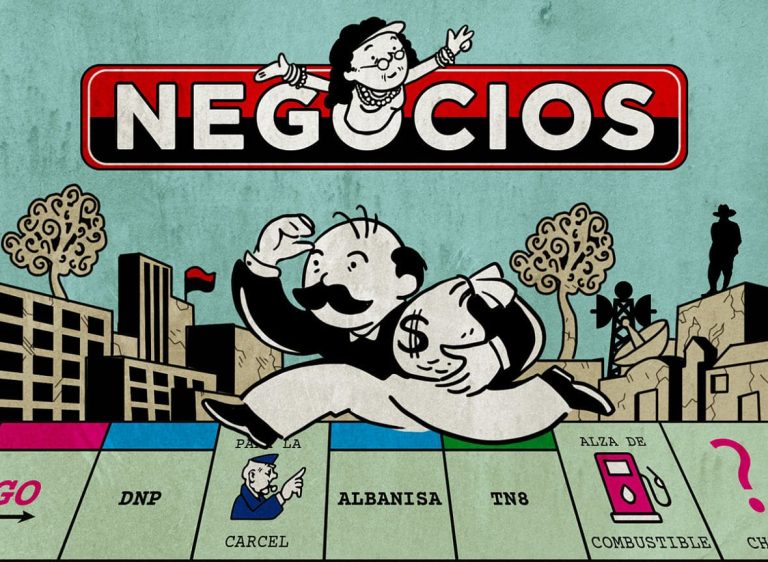

GIJN Member KRIK Exposes Wealth of Serbia Politicians
KRIK, a journalism network that investigates crime and corruption, began publishing a database listing the properties of Serbian politicians in December 2016. The revelations have made front-page news in some newspapers and are fueling online debates.
Titled “Imovina političara” (Properties of Politicians), the database reveals the real estate and other possessions owned by leading politicians and members of their families, as well as business relations and run-ins with the law. The goal of the project, which is supported by the Open Society Foundation – Serbia, the National Endowment for Democracy (NED), and readers’ donations, is “to enable citizens’ understanding of who the people who run their state are.” (Editor’s note: Open Society Foundations is a supporter of Global Voices and GIJN.)
 Serbians can now read that the family of Minister of Finance Dušan Vujović owns several houses and condos in Serbia and the United States, or that the brother-in-law of Minister of Mining and Energy Aleksandar Antić was convicted of producing amphetamines in a pharmaceutical company co-owned by the minister’s sister.
Serbians can now read that the family of Minister of Finance Dušan Vujović owns several houses and condos in Serbia and the United States, or that the brother-in-law of Minister of Mining and Energy Aleksandar Antić was convicted of producing amphetamines in a pharmaceutical company co-owned by the minister’s sister.
KRIK has not revealed all the entries at once, but is publishing several profiles of politicians per day. Leading newspapers such as Blic and Danas have published front-page coverage of the database’s revelations.
On its website, KRIK states that:
“Each profile contains information about apartments, houses, cars and companies of current government ministers, and details about how they came to possess them. The database provides information on which politicians had been building without permits or own illegal buildings. There’s also data about their credit, leasing, and about people who they’ve partnered with and committed offenses.
KRIK will constantly update the database with new profiles of politicians and officials. It will amend the existing profiles with new information.
The information within the profiles are based on official documents, which are available as downloadable scans.
To appraise the mentioned real estate, KRIK hired a real estate agency, which calculated their market values.“
To protect the privacy of the politicians, their relatives and associates, the journalists had redacted some information available in the scanned documents, such as personal data and house numbers of the apartments. However, the street names are there in order to provide insight into the value of the properties in regard to their locations.
All this has generated lively discussions online, primarily through the hashtag #imovinapoliticara, which also means “the properties of politicians.” Journalists and other citizens have commented on the revelations and their implications.
Translation: “Minister of defense is the director of a mysterious offshore company that made a contract with the telecom.”
Translation: “The minister of defense organized the traditional reception in the Serbian Armed Forces Guard Club, but didn’t show up at the event on Tuesday. Maybe because of #propertiesofpoliticians? Link: Government Minister Đorđević Admitted Owning an Offshore Company ”
https://twitter.com/BashCheleek/status/811159170695262208
Translation: “Minister Antić, his sister’s ecstasy factory and the naughty brother in law…”
One Twitter user made a pun referring to the Sicilian family-based criminal organization Cosa Nostra (i.e., the Mafia) by combining the first letters of the surname of government minister Krkobabić:
Translation: “Members of Krkobabić clan keep all their businesses “within the family.” Krka nostra.”
Another suggested that the media using the information in the database for their own coverage give KRIK a token of their appreciation. During the last few years, KRIK and its associates had been a subject to a nearly constant campaign of defamation and intimidation channeled through pro-government tabloids:
Translation: “The newspapers that bombastically reuse KRIK’s research should donate money to them.”
 This story first appeared on the website of Global Voices and is reproduced here under the Creative Commons license.
This story first appeared on the website of Global Voices and is reproduced here under the Creative Commons license.
Filip Stojanovski is Eastern & Central Europe Editor at Global Voices. He has been involved in web development since 1995, blogging since 2003 in English and Macedonian, and doing research at information society think tank Metamorphosis.










